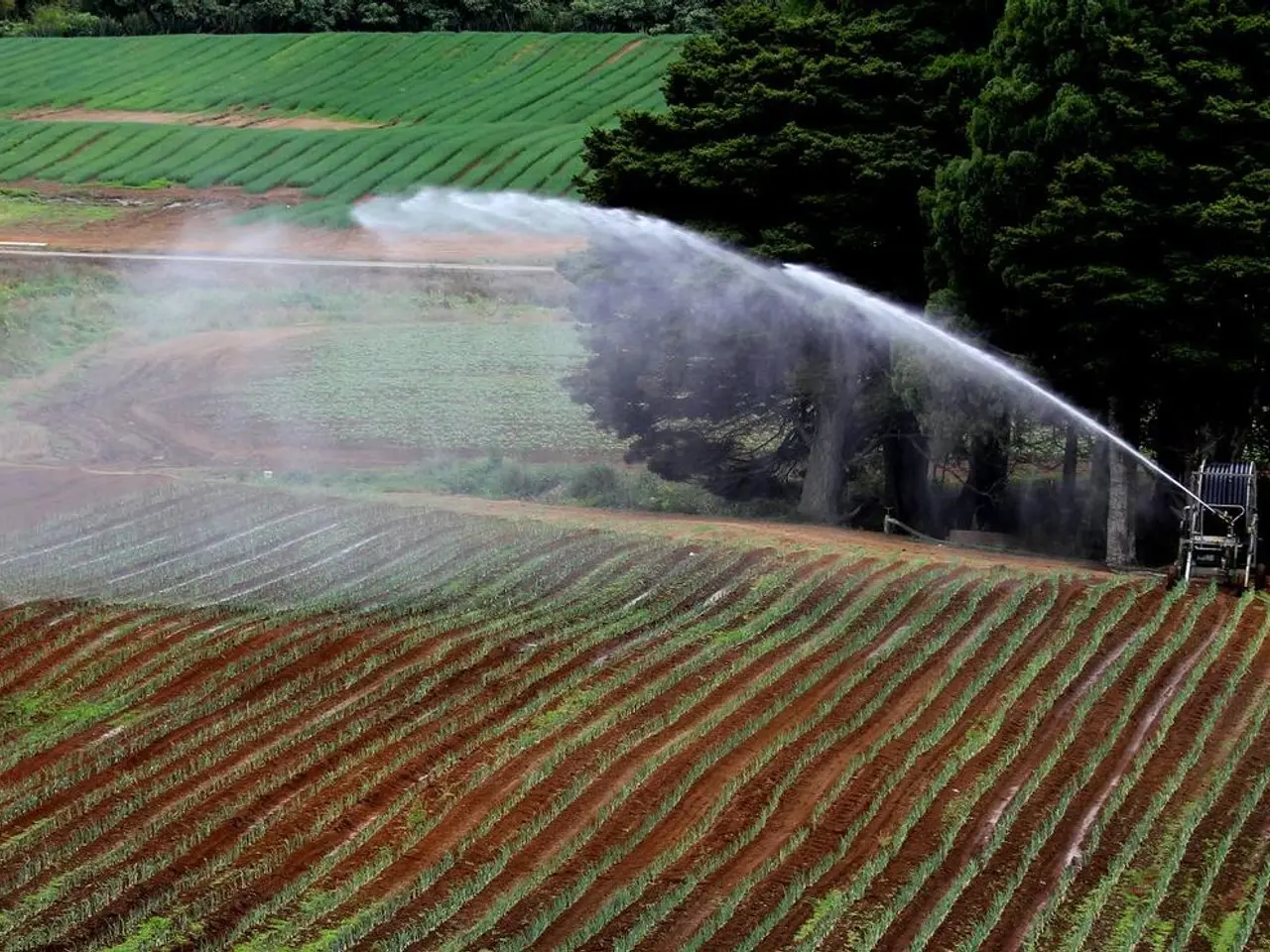Investment of $20m by SA-H2 in an eco-friendly ammonia production facility in Africa
South Africa is set to establish its first large-scale green ammonia production facility, located in the Coega Special Economic Zone in Nelson Mandela Bay, Eastern Cape province. The project, named the Hive Hydrogen Coega green ammonia project, is poised to accelerate the country's transition to clean energy and boost the regional economy.
The SA-H2 fund, a blended finance facility, will invest up to $20 million (€17.2m) in the development of the facility. The fund, a partnership between Climate Fund Managers (CFM) and Invest International, aims to secure $1 billion in funding. This innovative financing approach combines development funding, senior and equity capital, and backing from both local and international development institutions.
The SA-H2 fund's blended finance structure is designed to reduce risk in complex infrastructure projects and attract private sector investment for South Africa's move to net zero. Major South African financial institutions, including the Public Investment Corporation (PIC), Industrial Development Corporation (IDC), and the Development Bank of Southern Africa (DBSA), have collectively pledged $37 million to SA-H2.
The green ammonia produced by the facility will serve as a sustainable alternative to fossil fuel-based grey ammonia in hard-to-abate industries such as fertiliser production, shipping, and power generation. Japanese conglomerate ITOCHU Corporation may become a strategic equity investor in the project, further boosting its potential.
The new facility, expected to create 20,000 jobs in construction and operation, is anticipated to produce 1 million tonnes of green ammonia per year. The Hive Coega green ammonia project will also enable up to 20 gigawatts of additional renewable energy plants to connect to the national grid, supporting clean energy integration across South Africa.
Thulani Gcabashe, a spokesperson for Hive Hydrogen South Africa, a joint venture between UK-based Hive Energy and South African renewable energy and investment company BuiltAfrica, stated that the project will accelerate the just energy transition and revitalize the Eastern Cape economy. The facility, when operational, will not only contribute to South Africa's decarbonization efforts but also potentially export green ammonia to Asia and the EU, growing export demand for green ammonia from these regions.
The SA-H2 fund holds an option to participate in the construction phase with up to $200 million in investment. This blended finance model is critical for advancing South Africa's green hydrogen economy and enabling Hive Hydrogen to build and operate the large-scale green ammonia plant. The Nelson Mandela Bay region, where the facility is located, has the lowest gross domestic product per capita in South Africa, making this project a significant step towards economic development in the region.
- The Hive Hydrogen Coega green ammonia project in South Africa, receiving investment from the SA-H2 fund, aims to secure $1 billion in funding, with a structure designed to reduce risk and attract private sector investment.
- The SA-H2 fund, a blended finance facility, will invest up to $20 million in the development of the green ammonia facility, which is expected to create 20,000 jobs in construction and operation.
- The new facility, located in the Coega Special Economic Zone, will produce 1 million tonnes of green ammonia per year, serving as a sustainable alternative for hard-to-abate industries like fertiliser production, shipping, and power generation.
- Finance institutions such as the Public Investment Corporation, Industrial Development Corporation, and the Development Bank of Southern Africa have collectively pledged $37 million to SA-H2, supporting South Africa's transition to clean energy.
- The green ammonia produced by the facility may potentially be exported to Asia and the EU, increasing export demand for green ammonia from these regions.
- By accelerating the just energy transition and enhancing the regional economy, the Hive Hydrogen South Africa project will contribute to South Africa's decarbonization efforts and strengthen its role in financial inclusion, environmental-science, and the renewable-energy industry.




